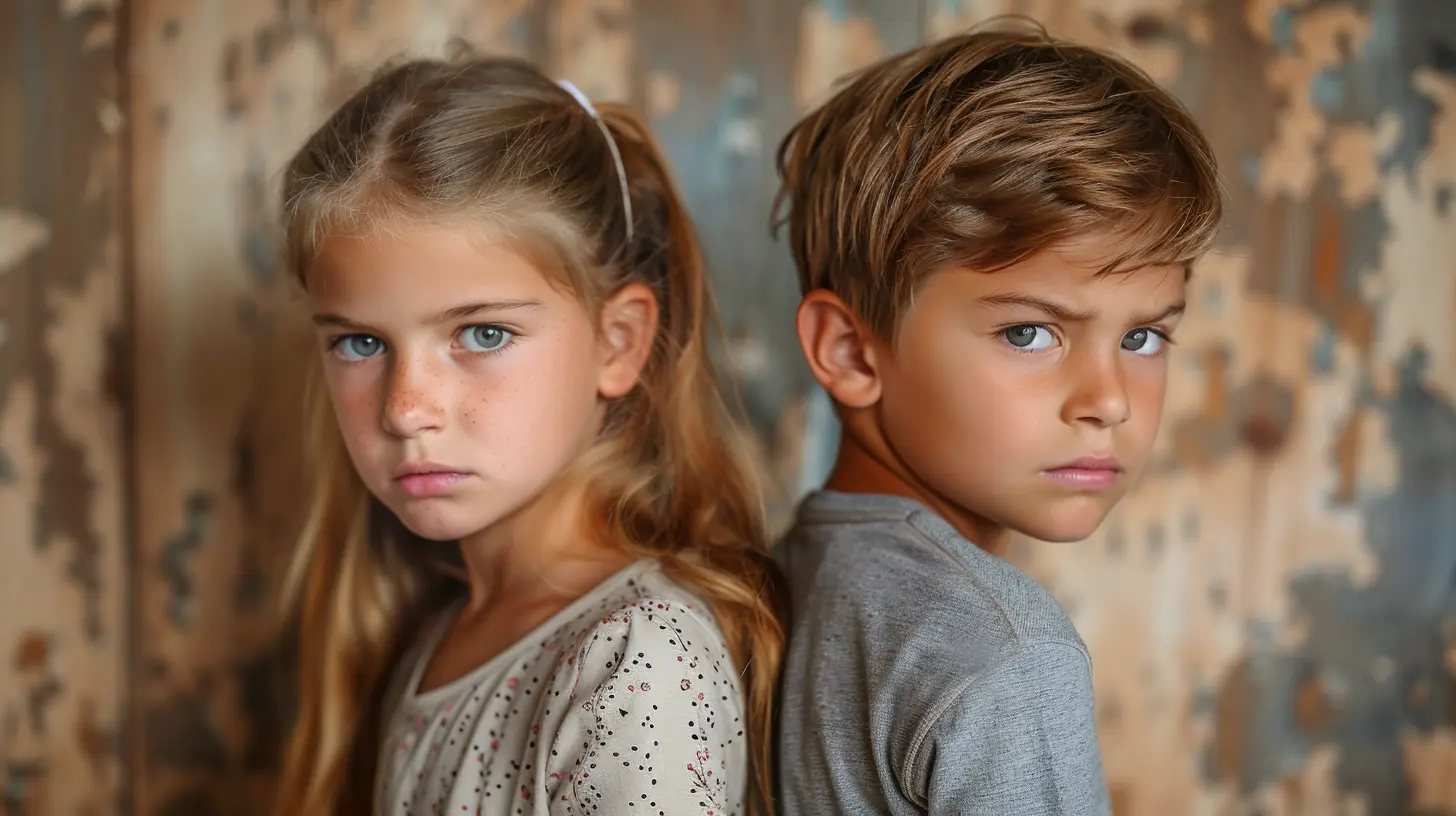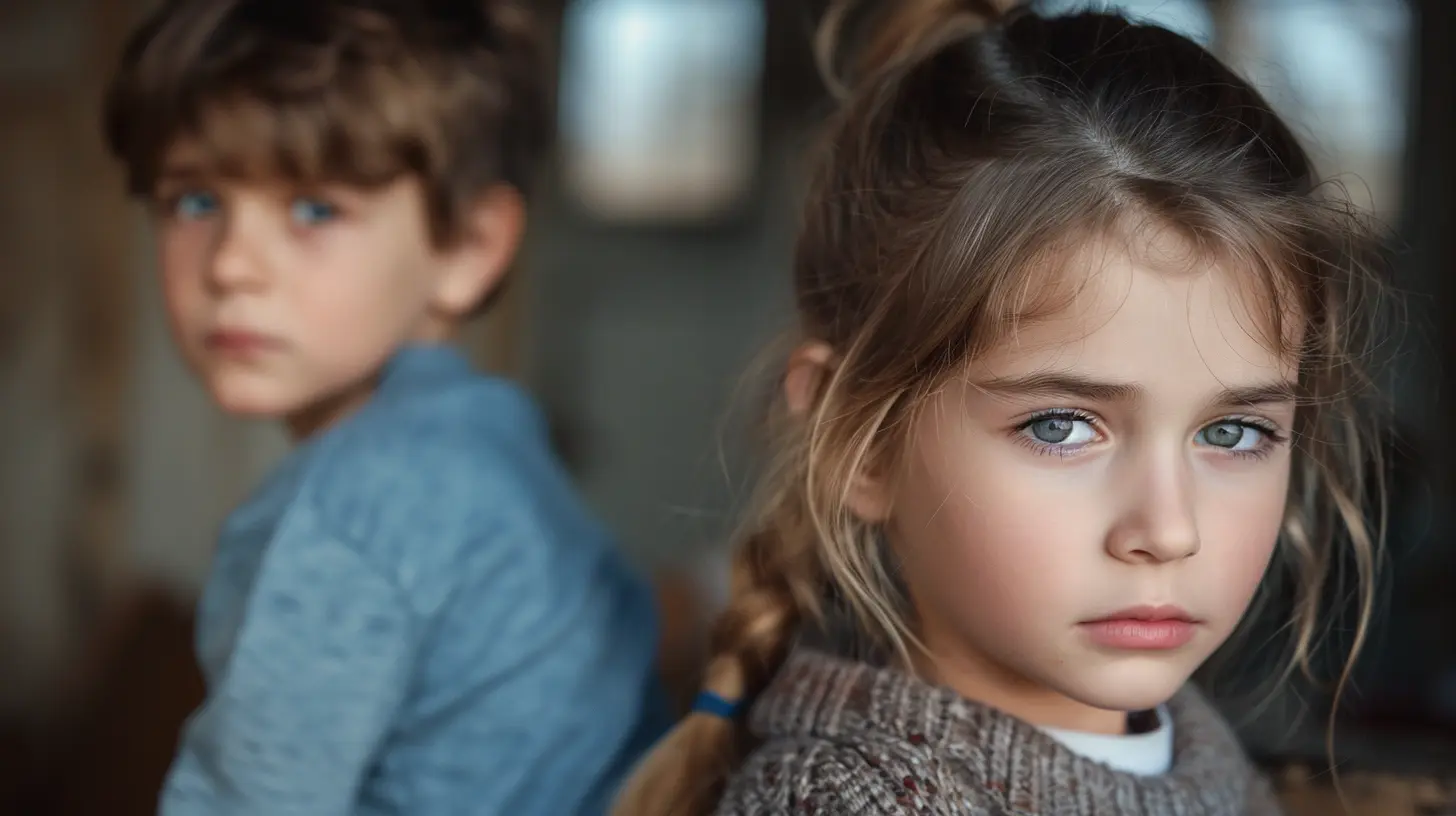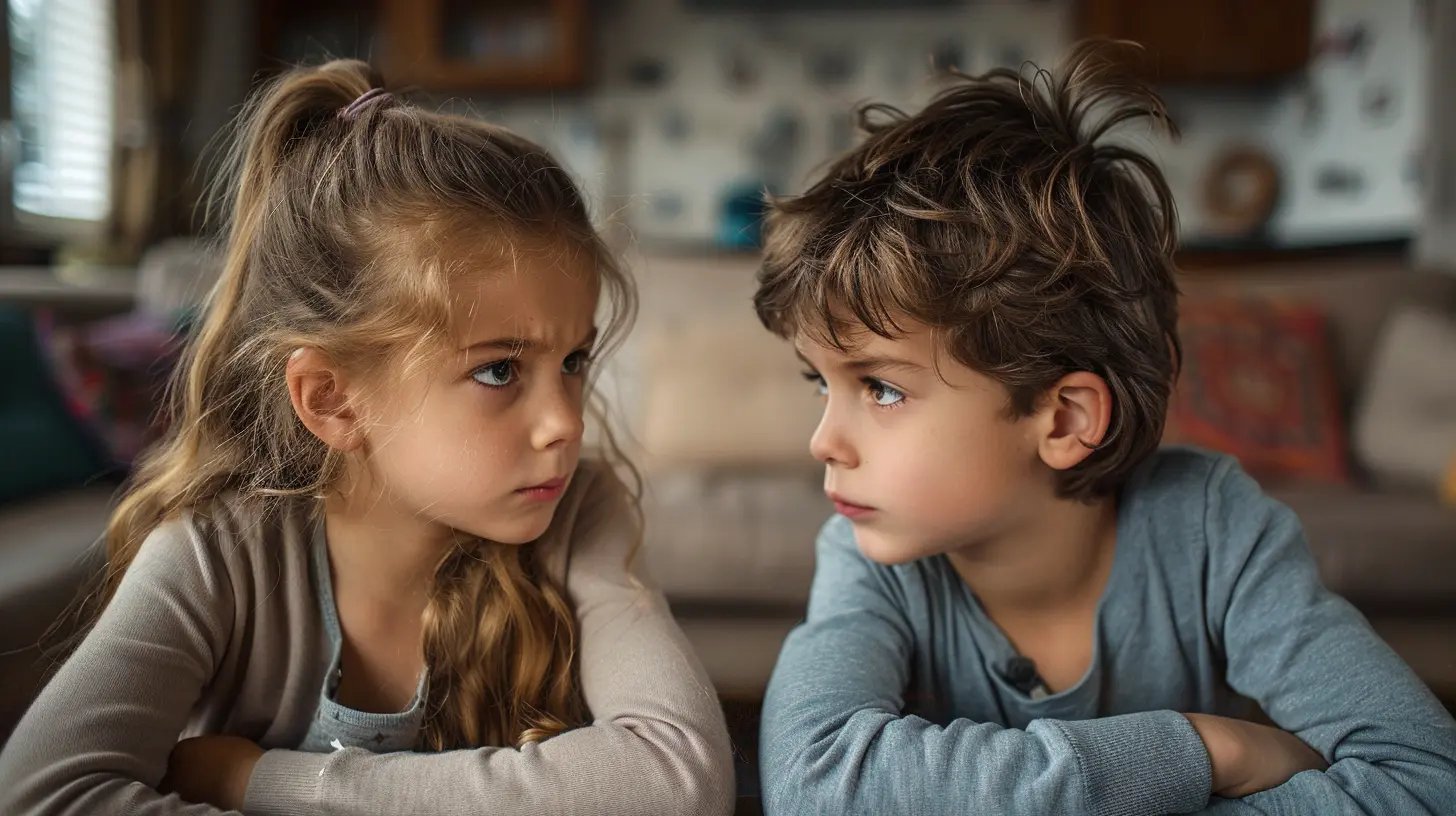Minimizing the Impact of Divorce on Your Kids: A Co-Parenting Guide
29 June 2025
Divorce is tough. No sugar-coating it. It's an emotional rollercoaster for everyone involved—but especially for your kids. But here's the thing: while you can't shield your children from every bump in the road, you can minimize the impact and help them find their balance in this new version of family life.
Let’s face it, co-parenting after divorce isn’t always smooth sailing. There might be disagreements, miscommunications, and the occasional eye-roll-worthy moment. But with a little mindfulness, cooperation, and a heck of a lot of love, you can raise incredibly resilient, happy kids—even after a split.
In this guide, we're diving deep into how to be an effective co-parent and keep your kids' well-being front and center.
Why Co-Parenting Matters
So, what's the big deal about co-parenting? Why not just divide responsibilities and keep your distance?Because your child still sees both parents as their whole world. When parents can co-parent respectfully, it gives kids a sense of stability and security—something that’s usually shaken up during a divorce. Think of it like building a sturdy bridge. You and your co-parent are on opposite shores now, but your child still needs a safe way to get from one side to the other without falling in.
The Emotional Fallout: What Kids Really Go Through
Let’s be real. Divorce flips a kid’s world upside down. They may act out, pull away, get angry, or even start blaming themselves. Kids are still figuring out how to process big emotions, and divorce tosses them into the deep end.That’s why how you handle the split makes all the difference. You can’t take away their pain, but you can soften the blow. Your job? Be their anchor.
Offer reassurance that they’re loved, safe, and not responsible for the divorce. Keep the grown-up drama out of their space. Stability, honesty, and emotional support are the tools you'll need every single day.
Rule #1: Never Use Your Kids as Messengers or Pawns
Here’s a no-brainer but worth repeating: your children are not mini-couriers or your personal spies. If you need to communicate with your ex, do it directly. Dragging your kids into the middle creates confusion, resentment, and unnecessary stress.Same goes for bad-mouthing. Trash-talking your ex in front of the kids is like setting off a mental landmine. It only damages their relationship with one or both of you—and that never ends well.
Your child loves both parents. So let them. Allow them that space, without guilt or interference.
Communicate Like Pros (Even If You’re Not Friends)
You don’t have to like your ex to co-parent effectively. But you do have to communicate like grown-ups. Think of it like running a business—you’re partners working toward a shared goal: raising awesome, well-adjusted humans.Keep conversations child-focused. Stick to the facts. Avoid emotional jabs, sarcasm, and history lessons. Use email or co-parenting apps if texting leads to fights. Clarity and boundaries can do wonders for reducing conflict.
Got a tricky topic to bring up? Sleep on it. Vent to a friend. Then approach it calmly and respectfully. The smoother your communication, the stronger your parenting team.
Create a Solid, Predictable Co-Parenting Plan
Kids thrive on routine. When everything else feels uncertain, having a clear schedule helps them feel grounded. Sit down with your co-parent and build a plan that covers:- Custody and visitation
- Holidays and birthdays
- School pickups and drop-offs
- Healthcare decisions
- Bedtimes, screen time, homework rules
Consistency is key here. Sure, life happens, and things will shift from time to time. But the goal is to give your child a structured rhythm to count on—no matter where they are.
Support Their Relationship with the Other Parent
This one can be hard, especially if the breakup was messy. But it’s crucial. Actively encourage your child’s connection with their other parent. Be excited when they’re visiting, ask about their time together, and don’t pick apart their stories.The more confident your kids feel in their relationship with both parents, the more emotionally balanced they’ll be. You’re showing them that love isn’t a competition—and that they don’t have to choose sides.
Team Up on Discipline and Rules
Imagine a kid going from a no-sugar, early-bedtime household to a free-for-all candy zone across town. It’s confusing. And honestly? It sets them up to play you against each other.Try to align household rules as much as possible. You don’t have to be carbon copies, but having similar expectations around school, chores, bedtime, and tech can help your child feel secure and prevent power struggles.
And yes, there will be disagreements. But it’s better to hash those out behind closed doors. Present a unified front when it counts.
Normalize Therapy—for Everyone
Think of therapy like brushing your teeth. It’s not just for emergencies—it’s maintenance for your mental health. If you notice your child struggling emotionally, acting out, or withdrawing, talking to a child therapist can help them process their feelings.And while you’re at it, consider therapy or counseling for yourself too. You’re navigating big life changes, and having professional support can help you show up better as a parent and a co-parent.
When New Partners Enter the Picture
Sooner or later, one or both of you might start dating again. It’s normal. But don’t rush your kids into meeting someone new before they’re ready. Every child reacts differently. Some are chill, others need more time to adjust.Keep the focus on your child’s comfort and emotional needs. And when it’s time to introduce a new partner, have a conversation with your co-parent first. Respect goes a long way in preserving peaceful co-parenting dynamics.
Correct Course When Things Go Sideways
Let’s get real—co-parenting isn’t perfect. There will be flare-ups, missteps, broken promises, and maybe a few heated phone calls. It happens.The key? Own your part. Apologize when you mess up. Reevaluate your approach. Don’t let one bad day (or week) turn into a grudge match. Co-parenting is like steering a ship—you’ll occasionally veer off course, but you can always adjust your sails.
Keep Check-ins with Your Kids
Kids don’t always come out and say, “Hey, this divorce thing is really messing with my head.” So make regular emotional check-ins part of your routine.Ask open-ended questions like:
- “How are you feeling about everything lately?”
- “Is there anything I can do to make this easier?”
- “Do you like how our schedule works?”
Listen without judgment or interruption. Sometimes just knowing you’re available and willing to hear them is the comfort they need.
Make Space for Happy Moments
Don’t let the divorce define your family. Create new traditions, celebrate small wins, and spend quality time reconnecting. Show your kids that happiness still exists—and that it’s okay to smile, laugh, and feel joy even after such a big change.Take that trip together. Bake those messy cupcakes. Have movie night with a pillow fort. It's these moments that stick in your child’s memory more than custody schedules or tense arguments.
A Quick Word on High-Conflict Co-Parenting
Unfortunately, not every co-parenting situation is cooperative. If your ex is toxic, neglectful, or emotionally abusive, then parallel parenting might be a better fit. That means keeping communication minimal, interactions structured, and boundaries firm while still supporting your child’s needs.In these cases, legal advice and counseling can be game-changers for protecting your child’s well-being.
Final Thoughts: You’ve Got This
Co-parenting doesn’t have to be a constant battle. It’s about building a new kind of family dynamic—one centered on love, support, and teamwork.You’re doing one of the hardest jobs there is: parenting through a divorce. But every step you take toward a cooperative, child-centered approach is a win. And your child? They’ll feel it in their bones.
They’ll grow up knowing that even when things fell apart, you came together for them. And that’s not just parenting. That’s love at its finest.
all images in this post were generated using AI tools
Category:
Co ParentingAuthor:

Karen Hurst
Discussion
rate this article
2 comments
Ford Wood
Empowering your children through co-parenting strengthens their resilience. Together, you can create a loving environment that helps them thrive despite challenges!
October 11, 2025 at 4:06 PM

Karen Hurst
Thank you for your insightful comment! Empowering children through co-parenting truly lays a strong foundation for their resilience and overall well-being.
Ivan Taylor
This insightful article provides practical strategies for effective co-parenting during divorce, emphasizing open communication, consistency, and emotional support, all crucial for minimizing disruption and fostering resilience in children.
July 5, 2025 at 2:33 PM

Karen Hurst
Thank you for your thoughtful comment! I'm glad you found the strategies helpful for co-parenting during divorce. Supporting children through this transition is essential.


